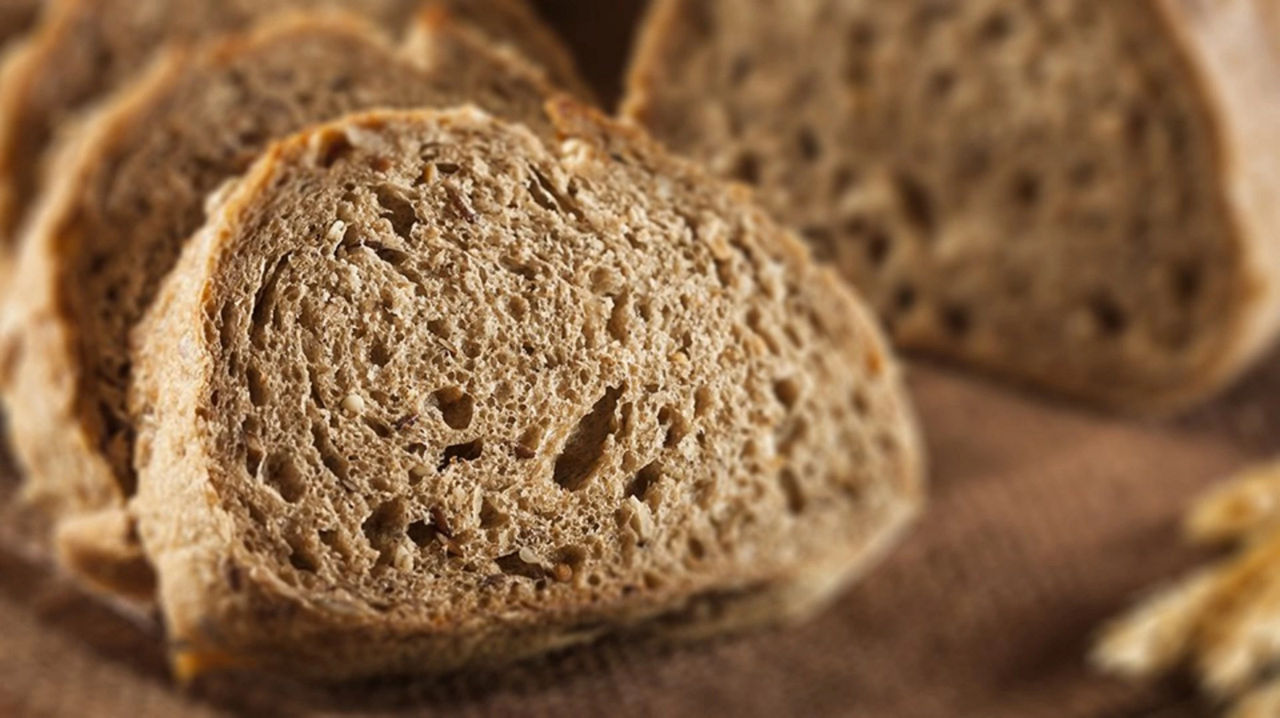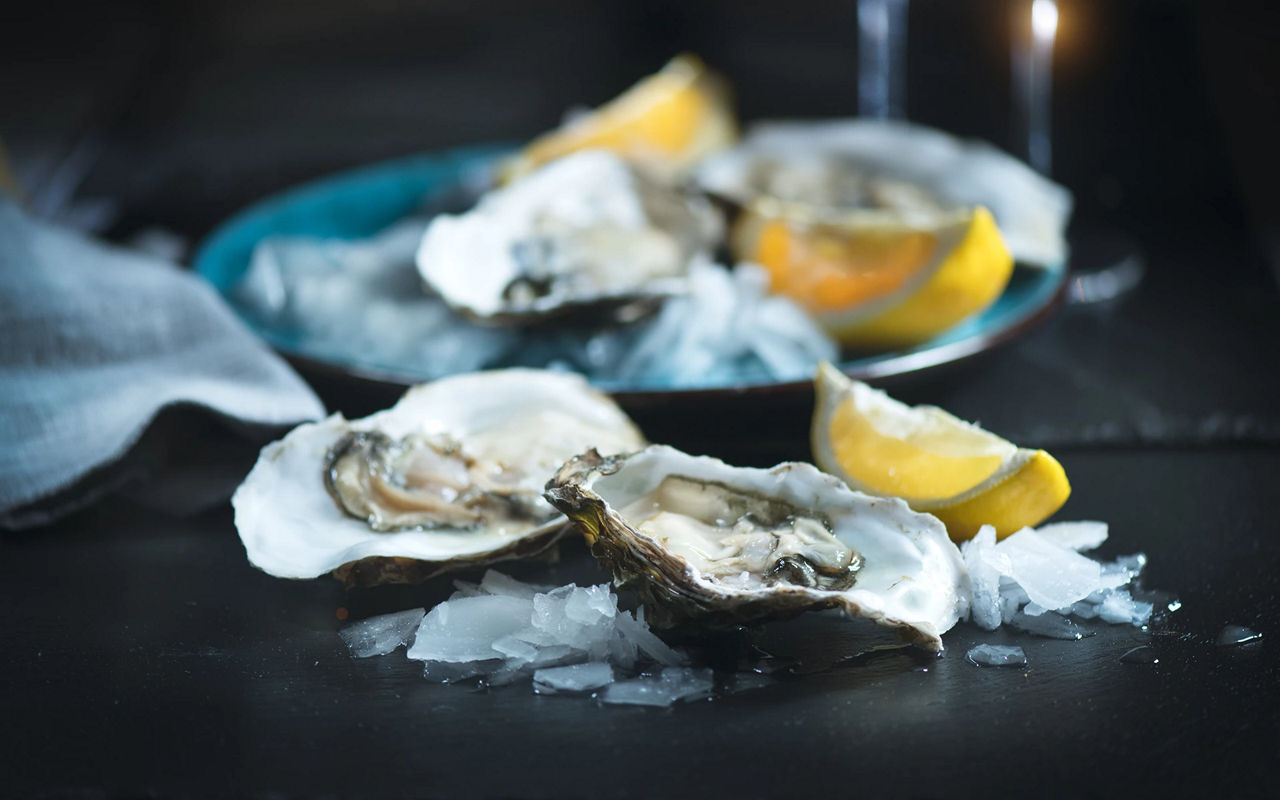During pregnancy, eating a well-balanced diet provides a vital source of nourishment for your baby. Their nutritional intake throughout your pregnancy lays the foundation for all future development, including their taste and smell preferences, and sets the stage for their lifelong health and wellbeing. Read on to learn more about healthy eating, getting a well-balanced diet from different food groups, the importance of unsaturated fat, the facts about eating for two and what do to if you follow a vegetarian, vegan or coeliac diet.
A healthy pregnancy diet
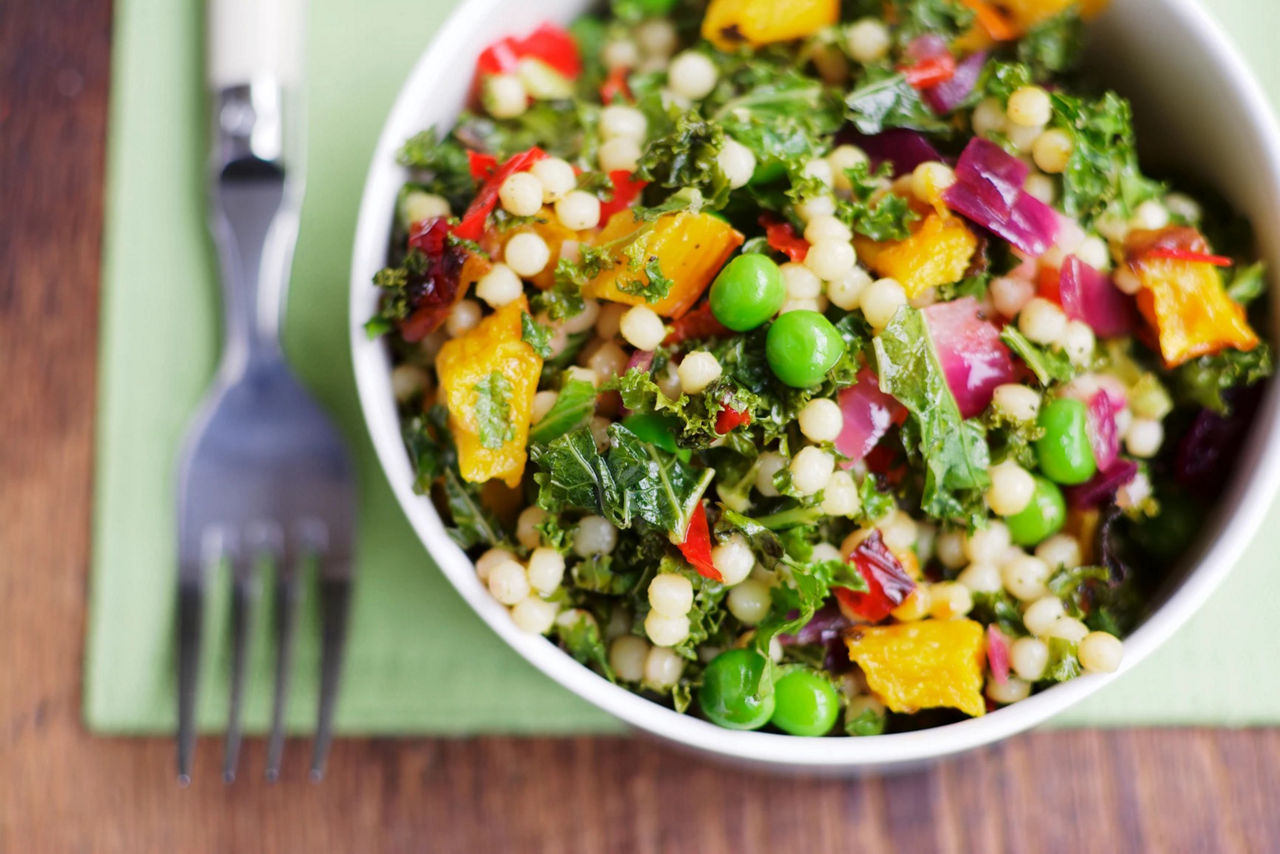
To help inspire mums to eat well, we’ve teamed up with celebrity chef Lorraine Pascale. Discover some of her healthy pregnancy recipes for breakfast, lunch, snacks and dinner.
Benefits of a healthy diet during pregnancy
Even if you find you’re hungrier than usual, you don’t need to ‘eat for two’ during your pregnancy. Eating for two is more about eating the right nutrition to support your baby’s development1 – and their future health once born. Although their progress is often categorised by weeks, months and stages, your baby’s growth and development is a continual process. So just how powerful can a healthy pregnancy diet be?
A healthy pregnancy diet can:
- Help to shape your baby's taste preferences.2
- Support the development of their immune system.3
- Positively affect your baby's birth weight.4
- Positively influence their cognitive development.5
- Help to manage your pregnancy weight gain4.
- Reduce the risk of gestational diabetes4.
Diet during pregnancy
Eating healthily during pregnancy often means just changing the amounts of different foods you eat so that your diet is varied.
Try to include good-quality protein, carbohydrates, dairy and a wide range of fruit and vegetables, whilst avoiding too many sugary, fatty or overly salty treats4.
If you like strong spices or flavours, eat them in the knowledge that it may help your baby enjoy them one day, too.
What's considered 'healthy eating' in pregnancy?
A healthy pregnancy diet should include a variety of nutrients from all the different food groups daily6. The Eatwell Guide6 suggests how much from each food group you should eat overall, and to keep certain fats and sugary foods to a minimum.
Best foods for pregnancy:
Starchy foods: Starchy foods should make up just over a third of the food you eat6. Try to base meals around wholegrain and higher fibre versions with less salt, added fat and sugar.
Fruit and vegetables: Try to eat at least five portions of fruit and vegetables a day for your recommended daily intake of vitamins and minerals.
Dairy and alternatives: These provide a good source of protein, calcium, phosphorus and vitamin D. Choose lower-fat varieties with fewer calories. Find out more about eating cheese and dairy during pregnancy.
Protein: Eat lean meat, poultry, fish, eggs, beans and other non-dairy sources of protein every day, including two portions of sustainably sourced, oily fish per week1. Read more about eating meat during pregnancy.
Fatty or sugary foods: Cakes, biscuits, crisps and other fatty or sugary foods have little nutritional value. Try to limit your intake and opt for healthier alternatives. Read more about the role of sugar pregnancy.
Fats: the good and the bad
While it’s true that some fats carry health risks, others provide an important source of energy and help the body to absorb certain nutrients7. They can also provide essential fatty acids that your body can’t make, which are vital for your baby’s development throughout pregnancy8.
Unsaturated fats
There are two groups of unsaturated fat – monounsaturated and polyunsaturated fats – that are essential for your baby’s growth7:
Omega-3 & Omega-6 fats
Omega 3 fats are a particularly beneficial type of long chain polyunsaturated fats (LCPs)7, which play an important role in your baby’s brain, visual and nervous system development.
Some types of omega-3 fats cannot be made by the body and are therefore essential in small amounts in the diet.
Omega-3 fats are found in oily fish, such as:
- Kippers
- Herring
- Trout
- Sardines
- Salmon
- Mackerel
Omega-6 fats are found in vegetable oils, such as:
- Rapeseed
- Corn
- Sunflower
- Some nuts
While you need to ensure you include an adequate amount of omega-3 fats in your diet during pregnancy, you also need to limit your intake of oily fish to two portions per week1. Read more about eating fish during pregnancy.
As well as being a good source of energy, unsaturated fats also act as a healthy carrier for the fat-soluble vitamins that are needed for your baby’s development, particularly
- Vitamin D – regulates calcium and phosphate, which help to keep bones and teeth healthy
- Vitamin E – helps give cells their structure by supporting cell membranes
- Vitamin K – aids blood clotting and also contributes to bone health
Unsaturated fats are an important part of a well-balanced pregnancy diet, providing all the benefits of fats and less of the risk.
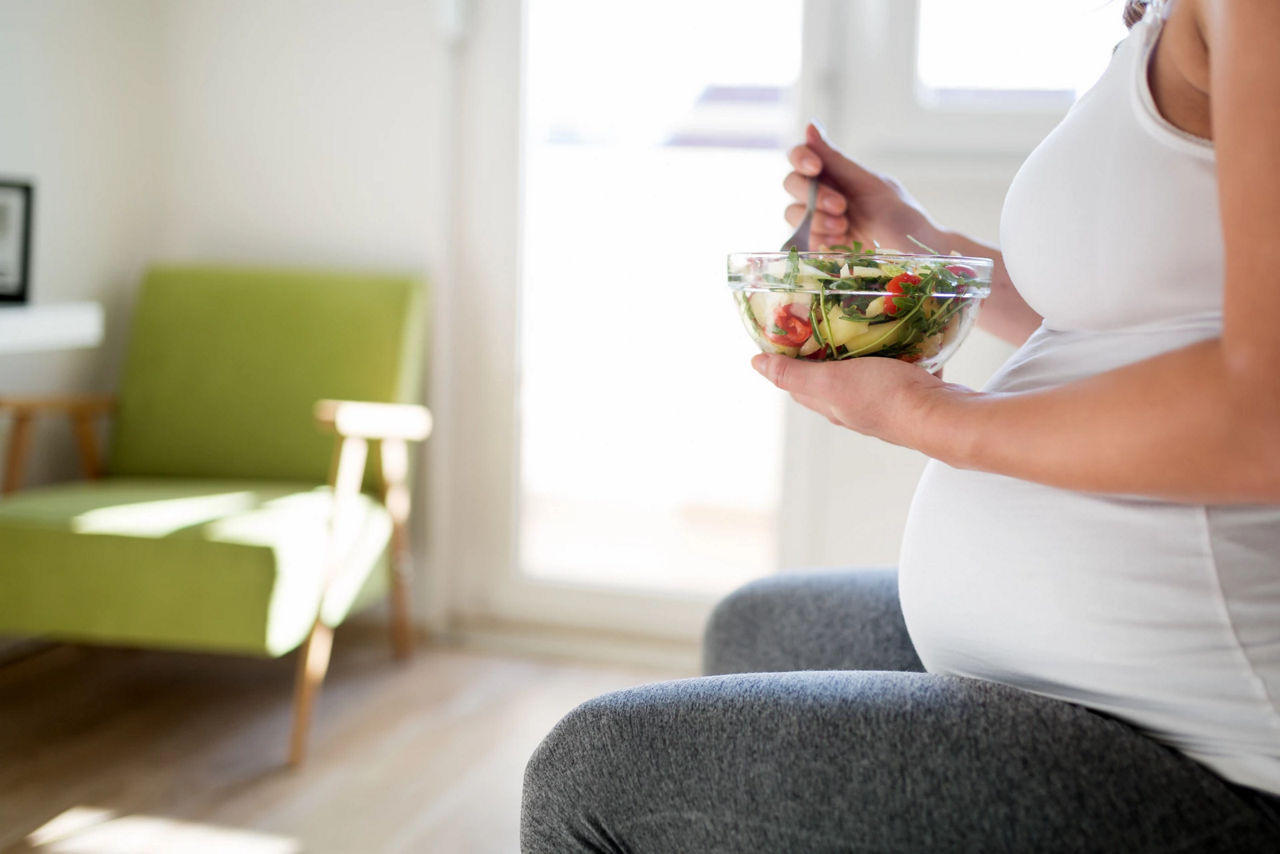
Should you be eating for two?
Although your pregnancy diet supports you both, there’s no need to overindulge. In fact, your recommended calorie intake is the same as pre-pregnancy until you reach your third trimester.
This is because any additional energy needed for the growth of your baby during the first and second trimester is compensated by the typical reduction in physical activity during this time. Once you reach your third trimester, your needs increase slightly.
From 27 weeks onwards, you should eat an extra 200 calories per day, which is the equivalent to two slices of toast with butter.
Eating more food than you need during pregnancy can lead to excessive weight gain. In turn, this can have consequences for your baby’s development and has been linked to complications such as large birth weight and an increased risk of caesarean birth.
What to eat on a specialised or restricted diet when pregnant
If you usually follow a special diet, such as vegetarian, vegan or gluten-free, you may need to pay extra attention to get the nutrients needed that could potentially be lacking during your pregnancy.
Your healthcare professional will be able to advise you on the specific adjustments you need to make depending on your individual circumstances. It’s important to find professional support to ensure you get a wide variety of nutrients that supports your baby’s current development and future health.
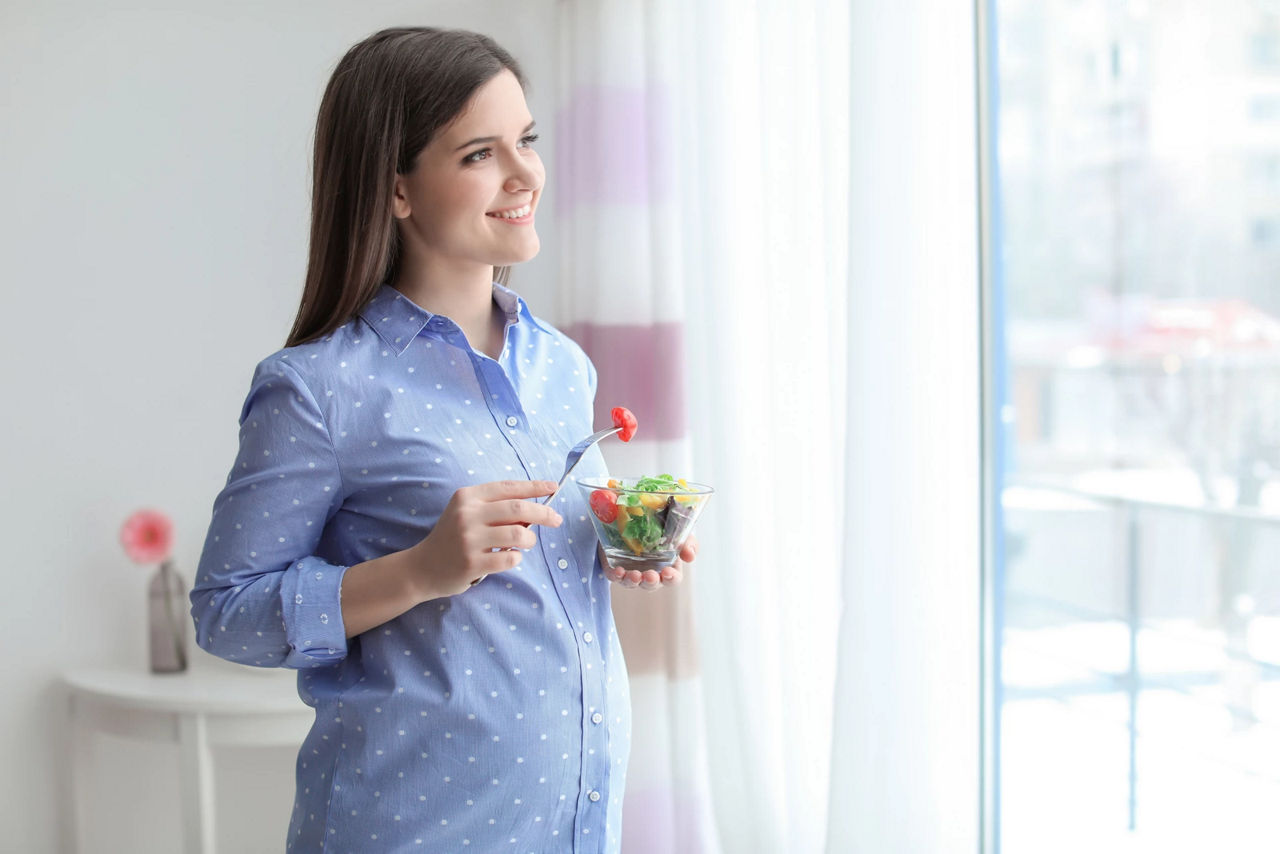
Vegetarian and vegan pregnancy diets
A vegetarian diet has certain benefits for pregnancy. It is usually high in carbohydrates, the main fuel for your baby. However, due to the absence of meat and fish, it's important to ensure that the protein and nutrients they provide are gained from other sources.
The vitamins and minerals that need extra attention are vitamin B12 and vitamin D , calcium, riboflavin, iron, zinc and Omega-3 or long chain polyunsaturated fatty acids (LCPs).
Vitamin B12 is important throughout pregnancy but especially in the first trimester due to its role in helping the body process folic acid. Although Marmite is a good non-animal source, vegans in particular, may need a supplement to ensure they are getting adequate levels of vitamin B12.
Coeliac diets
If you have coeliac disease you should talk to your healthcare professional about any special advice, they may have on what to eat while you’re pregnant. Research shows that as long as your condition is well managed throughout pregnancy, coeliac disease shouldn’t have any impact on your pregnancy or your baby’s development.
Discover how what you eat during your pregnancy shapes your baby’s taste preferences when they’re older.
related articles
Read more

Get in touch with our Careline experts
Our nutritionists and feeding advisors are always on hand to talk about feeding your baby. So if you have a question, just get in touch
- NHS UK. New weight advice for pregnancy [Online]. 2010. Available at: www.nhs.uk/news/2010/July07/Pages/new-nice-guidelines-weight-pregnancy.aspx [Accessed May 2014]
- Wells JCK. The thrifty phenotype as an adaptive maternal effect. Biol Rev Cam Philos Soc 2007;82(1):143-172.
- Nutrition.org. Nutrition in pregnancy summary [Online]. 2007. Available at: http://nutrition.org.uk/attachments/204_Nutrition%20in%20pregnancy%20summary.pdf [Accessed May 2014]
- NHS UK. Vitamins and minerals: B vitamins and folic acid [Online]. 2012. Available at: www.nhs.uk/Conditions/vitamins-minerals/Pages/Vitamin-B.aspx [Accessed May 2014]
- NHS UK. Vegetarian and vegan mums-to-be [Online]. 2013. Available at: http://www.nhs.uk/Livewell/Vegetarianhealth/Pages/Vegandiets.aspx [Accessed May 2014]
- NFCA. Pregnancy and celiac disease [Online]. 2009. Available at: www.celiaccentral.org/research-news/Celiac-Disease-Research/134/vobid--2030/ [Accessed May 2014]
- NHS UK. Overweight and pregnant [Online]. 2013. Available at: www.nhs.uk/conditions/pregnancy-and-baby/pages/overweight-pregnant.aspx [Accessed: July 2014]
Last reviewed: 28th July 2020
Reviewed by Nutricia’s Medical and Scientific Affairs Team

